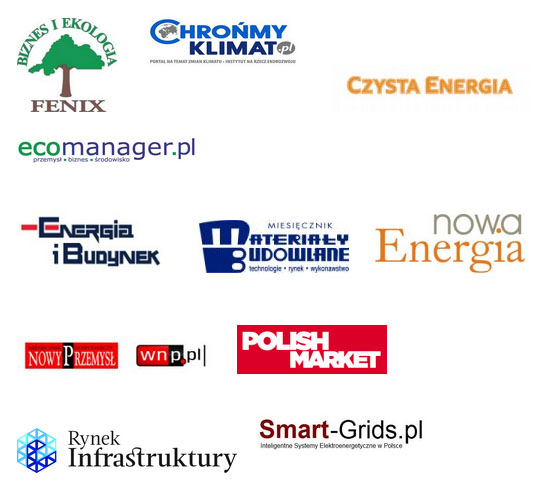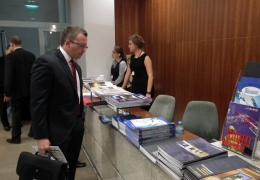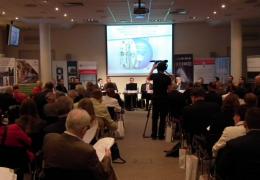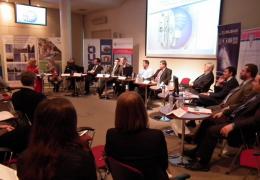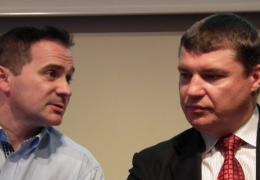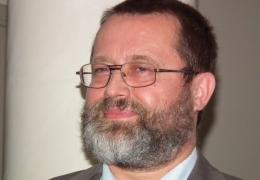Invitation to debate
STABILIZING NETWORK – ENERGY SECURITY OF METROPOLIS
29 September 2011 (Thursday), 11 a.m.
“Polityka”, Słupecka 6, Warsaw
Energy security of cities is one of the biggest challenges for urbanized Poland. Access to electricity is nowadays one of the major indicators of development. Thus the experts have been postulating that competences of municipal authorities should include such tasks as: planning and organization of heat and electricity supply, including local sources, planning and financing lightning system of public zones as well as specifying location of energy infrastructure in urban development plans.
Unfortunately, system of metropolis management still seem to be chaotic, local demands are not taken into consideration. Moreover, despite small and probably just temporary decrease in energy demand caused by the economic crisis, the general demand will grow steadily. At the same time there is no increase in new installations construction nor in the number of system transfer connections. Domestic production of energy is based on old-fashioned and out-of-date facilities that do not guarantee security of supply. Any exchange or modernization thereof that shall cover up for lost production and fulfill EU requirements needs brave decisions and consistent, long-term execution. Longer than just a 4-year office term of Polish politicians. Energy security shall be thus understood as ‘ability of the system to maintain stability of supply in crisis situation’ whereas sufficiency refers to maintaining ‘supply of end-consumers according to their demand’.
During the debate politicians, scientist, managers from the energy sectors and representatives of the municipal authorities discussed how cities should respond to challenges caused by the growing demand for electric power. We brainstormed what step shall be taken and how to transform the municipal infrastructure in order to increase the energy security of metropolis. Discussed were topics as follows: the need to reconstruct energy rings around cities, to modernize network and sensor systems (sensors with radio transmission module) monitoring the lines: temperature, current electric and mechanical load (ice, snow etc.) Finally we tried to discuss strategy for communication between suppliers, municipal authorities and the inhabitants.
The panel of speakers included:
- prof. Krzysztof Żmijewski, Secretary General of the Polish Board of the National Programme for Emissions Reducation
- Grzegorz Tomasik, Member of the Board, PSE Operator,
- Przemysław Zaleski, Vicepresident, ENEA Operator, Polish Board of the National Programme for Emissions Reducation
- Zbigniew Kamieński, Vice-chairman of the Department of Development, Ministry of Economy
- Katarzyna Kacpura, Deputy of the Director of the Bureau of Infrastructure, Warsaw Municipal Office
- Robert Dzięciołowski, Vicepresident, PSE Centrum
- Leszek Kukuła, Department for Competitivness Promition, Energy Regulatory Office
- Janusz Piechociński, MP, Vice chairman of the Infrastructure Committee and Innovation and New Technologies Committee, Lower Chamber of Parliament
- Bartosz Wojszczyk, PhD, Global Smart Grid Technical Solutions Leader, GE Energy
- Mikko Syrjänen, General Manager for Strategy, Wärtsilä Corporation
- Marcin Święch, Director of Division of Intrinsically Safe Systems, EC Electronics
- Igor Lange, Specialist, Energy Department, Ministry of Economy
- Piotr Szpindler, Research & Development Director, Kromiss Bis
If you need more information about the debate or presentations of the speakers please contact Ms. Alicja Mazur, komunikacja@proinwestycje.pl
STRATEGIC PARTNERS:
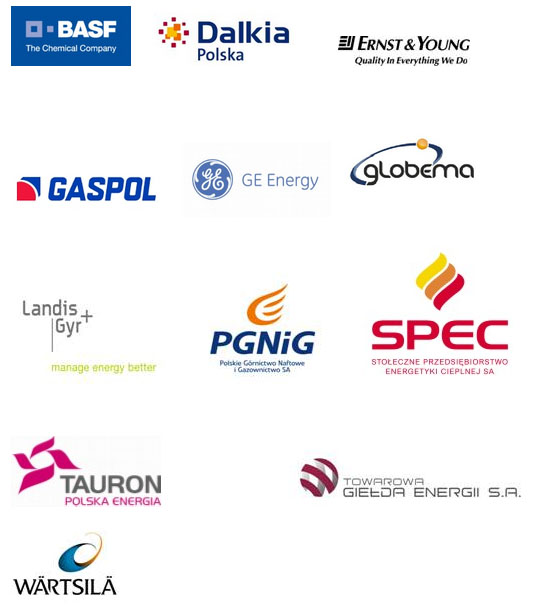
HONORARY PATRONAGE:

MEDIA PATRONAGE:
